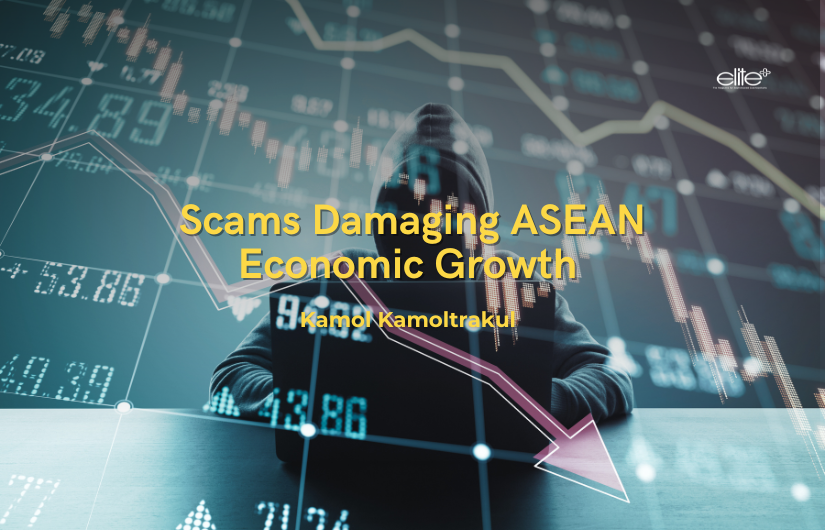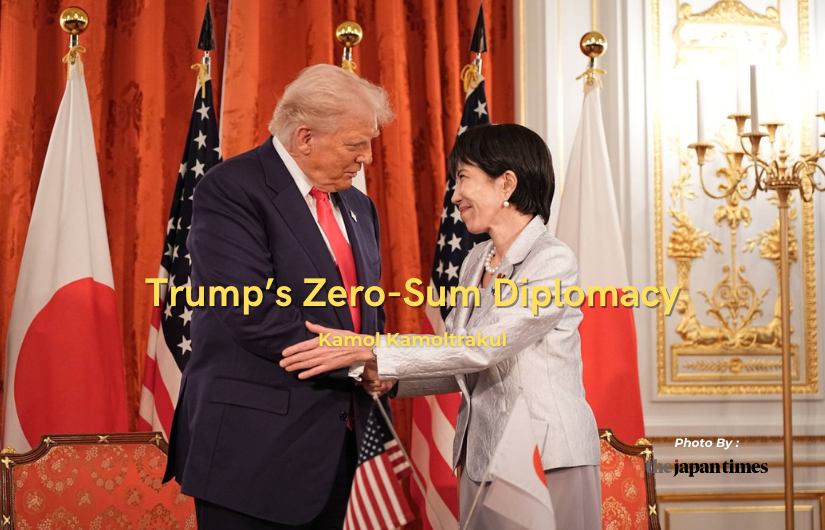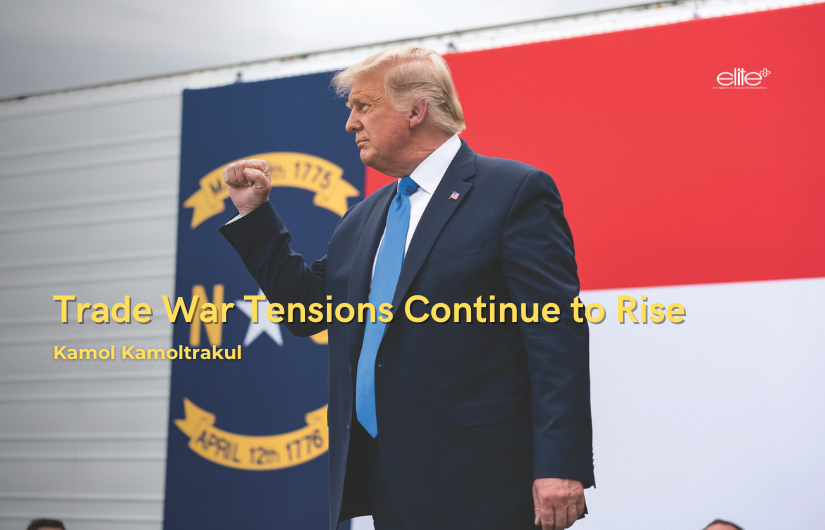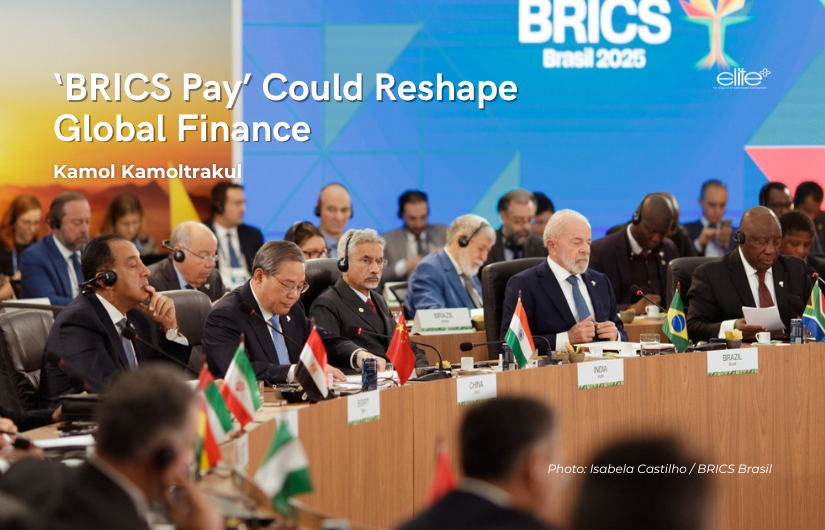Geopolitics Shift to Asia
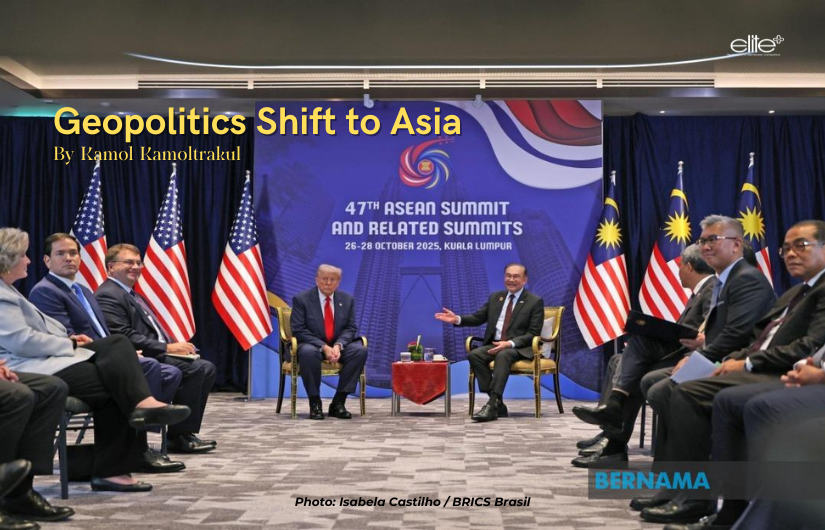
As international trade has grown, many countries have joined hands to build cooperative trading blocs, or economic alliances. Among these are BRICS, SCO, APEC and ASEAN. Right now, Asia has become the stage for geopolitical drama, with two important international events being hosted by Malaysia and South Korea. First US President Donald Trump will join the ASEAN Summit in Kuala Lumpur before he and Chinese President Xi Jinping make state visits to South Korea when it hosts Asia-Pacific Economic Cooperation (APEC) events. This meeting comes after Trump’s visit to Japan where he met the first Japanese female prime minister, Sanae Takaichi.
Bilateral meetings will take place between Trump and Xi at the APEC Summit, which takes place between 31 October and 1 November this year in South Korea's eastern city of Gyeongju. Before this, Trump joined the ASEAN summit in Kuala Lumpur on 26 October to 28 October where he was able to brandish himself as a peacemaker as Cambodia and Thailand signed a declaration to work for peace over their border conflict. The 10-member bloc in attendance also welcomed Timor-Leste to the ASEAN bloc. In addition to the now 11 members, key trading partners such as China, Japan and the US were in attendance.
Following this event, APEC is an important platform where leaders from 21 economies, including the United States and China, will meet. This year's meeting is therefore a "Diplomatic Summit Week" that will affect global stability.
At the APEC summit, South Korean President Lee Jae Myung is also planning to hold summit meetings with Trump and Xi separately, said Wi Sung-lac, South Korea's presidential security adviser.
"Through a series of bilateral summits between the leaders of South Korea the United States and China, South Korea will be seen as a platform aimed at building consensus for peace, prosperity and stability in the region," Wi told reporters.
Wi said South Korea was hoping to move forward on issues surrounding security and US tariffs at an upcoming meeting between Lee and Trump, but he was uncertain whether any agreement between the two sides would be reached.
It was also said that since South Korea and its major ally remain vastly apart on the level of cash investment as part of a USD 350 billion package pledged by South Korea under a deal to lower US tariffs on the country's exports, the two leaders are expected to discuss a win-win solution to deepen their bilateral partnership.
Previous, at the ASEAN meeting, Anwar said. “2025 is a year that asks more of us. The world feels unsettled – the old order no longer certain, the new one not yet defined.”
He went on, “Across regions, we see rising contestation and growing uncertainty. These crosswinds test not only our economies, but our collective resolve to keep faith in cooperation – to believe that understanding and dialogue can still prevail in a divided age.”
In addition, Malaysian Foreign Minister Mohamad Hasan said that the Association of Southeast Asian Nations must not be a passive bystander but a proactive force for stability, openness and peace amid rising protectionism and intensifying global power rivalries. He noted that member nations were meeting at a time when the global order is undergoing profound changes, which include intensifying great power competition, reconfiguring of supply chains, blurring of lines between technology, security and economics.
He then concluded by saying ASEAN’s continued relevance will be measured by the group’s ability to engage all partners constructively while resisting the gravitational pull of rivalry polarisation.
Also speaking at the joint meeting was Malaysia’s minister for Investment, Trade and Industry, Tengku Zafrul Abdul Aziz, who said ASEAN must remain steadfast in upholding a rules-based multilateral trading system that underpins global stability and shared prosperity.
He felt that ASEAN should advocate for more focused and high-impact reforms at the WTO (World Trade Organisation) - particularly in areas such as enhancing subsidy transparency, establishing digital trade governance and restoring trust in dispute settlement mechanisms to rebuild trust and confidence in global trade.
He also expressed hope that the ASEAN Geo-Economic Task Force (AGTF), established earlier this year, would offer “clear, practical and forward-looking recommendations” to guide the bloc's strategic direction.
It must be remembered that Trump’s visit to Kuala Lumpur was the first time a US president visited Malaysia in a decade, the last being Barack Obama’s visit in 2015. It was also a rare appearance for Trump at an ASEAN summit, having only attended the 2017 gathering in the Philippines during his first term in office as he skipped subsequent meets, raising questions about his administration’s commitment to the region. However, Trump told ASEAN leaders that he was happy to be back in Southeast Asia, home of some of America's most important allies and countries and partners.
Significantly, Thailand and Cambodia signed an expanded ceasefire agreement on Sunday during a ceremony attended by US President Donald Trump, whose threats of economic pressure prodded the two nations to halt skirmishes along their disputed border earlier this year. The ceremony was Trump's first event after arriving at this bi-annual ASEAN gathering.
We did something that a lot of people said couldn't be done, Trump said. Cambodian Prime Minister Hun Manet called it a "historic day", and Thai Prime Minister Anutin Charnvirakul said the agreement creates "the building blocks for a lasting peace."
However, BBC raised the question as to what it meant with Trump presiding over the signing in which Cambodia and Thailand agreed to move toward resolving their longstanding hostilities over their shared border as President Trump took credit for mediating the decades-old dispute and sought once again to promote his peace-making credentials.
However, there are still significant obstacles for lasting peace as the neighbours have not agreed on how to define the border as they also have to manage nationalistic emotions over the issue. The official text of the agreement describes that it is not a peace deal, but a joint declaration by the prime ministers of both Cambodia and Thailand on the outcomes of their earlier meeting in Kuala Lumpur, Malaysia.
In his address to the ASEAN members, Trump said that his message to the nations of Southeast Asia is that the US is with you 100% and that the US intends to be a strong partner and friend for many generations to come.
He then announced that he had dropped the tariffs on Malaysia, Cambodia and Thailand’s exports to the US to zero as an award for their efforts.
However, Joanne Lin, a co-coordinator of the ASEAN Studies Centre at ISEAS–Yusof Ishak Institute in Singapore, cautioned against reading Trump’s visit as a signal of his long-term commitment to ASEAN, noting that Trump’s diplomatic style tends to favour short-term and transactional engagements.
Lastly, Lin said she believes that Trump’s main interest seemed to centre on the Cambodia–Thailand peace deal as he still pursues the Nobel Peace Prize.
It has been said that international events, which draw media from around the world, are the best place for politicians to present themselves to gain popularity.

Kamol Kamoltrakul 48 Posts
Visiting lecturer: Navy Academy Institution, NIDA, School of Governor, Ministry of Interior, Chulalongkorn University, Former Lecturer, ABAC Honorary Advisor Trade and Industry Committee Senate. Senior advisor, Standing Committee on Finance and Banking, The House of Representative. Former Advisor to the Minister of Interior Board Member of ThaiPBS Board Member Of Thai Consumer Council Columnist : Prachachart Business Weekly, Matichon Weekly, Khom Chad Luke Daily Former Program Director Asian Forum for Human Rights and Development ( FORUM-ASIA).




